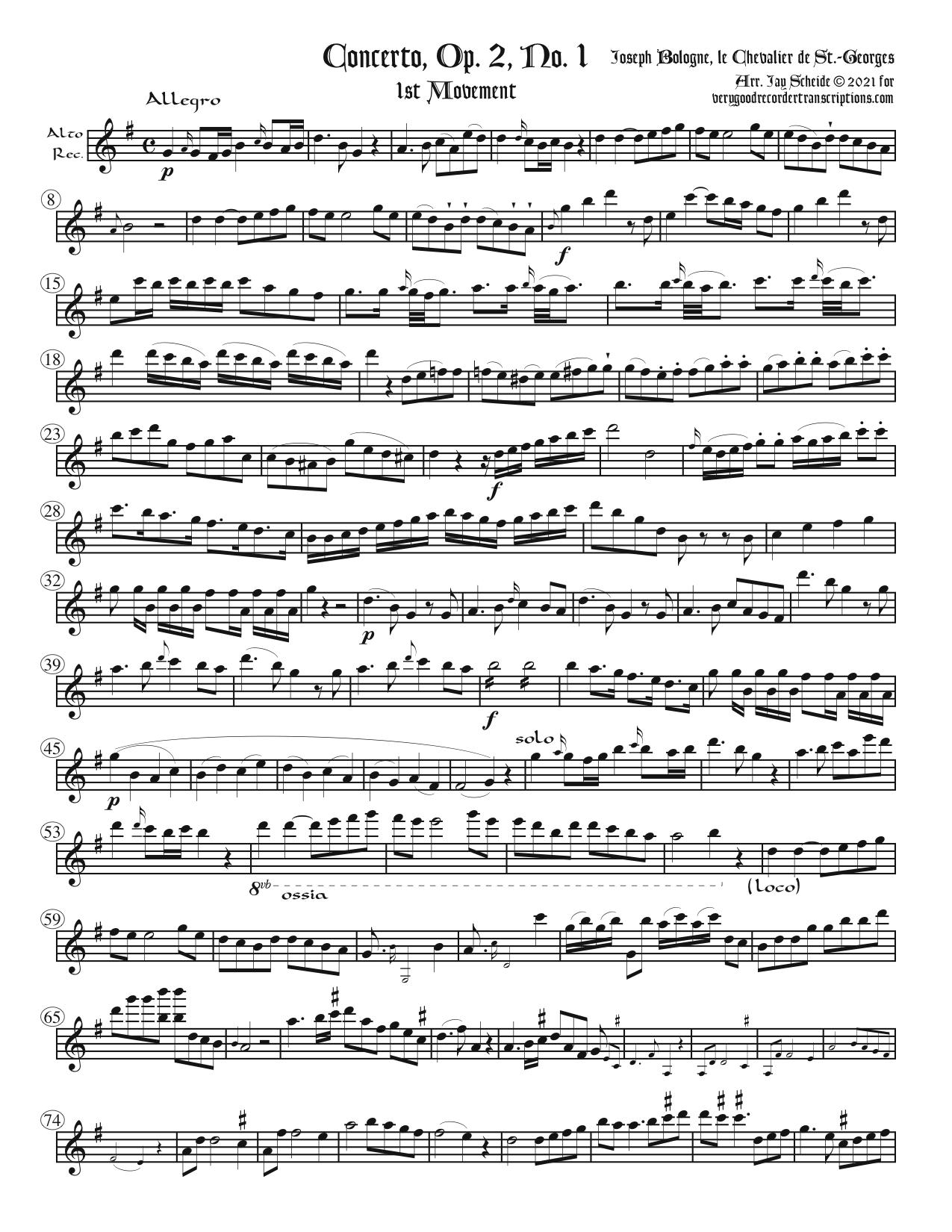Recorder parts from Eleven Concertos
from: J. B. Saint-Georges (1745-1799)
The eleven concertos are Op. 2, No. 1&2, Op. 3, No. 1&2, Op. 4, No. 1&2, Op. 5, No. 1&2, and Op. 7, No. 1&2, and Op. 8, No. 2, 1st mvt. Note that Op. 2, No. 1&2, Op. 3, No. 2, 1st mvt., Op. 4, No. 1&2; Op. 5, No. 1&2, Op. 7, No. 1&2, and Op. 8, No. 2, 1st mvt. are available in arrangements with keyboard accompaniment.
Recorder parts from Eleven St.-Georges Concertos
84 pp.
$4.00

